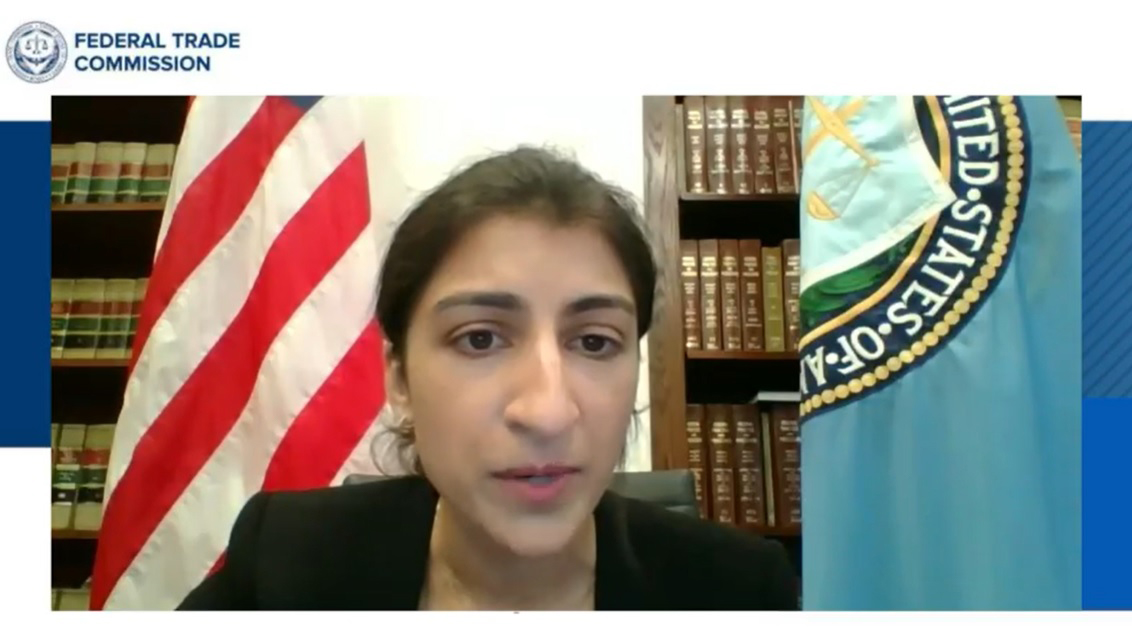FTC Withdraws Vertical Merger Guidelines
Also highlights report on Big Tech purchases below HSR radar

The smarter way to stay on top of the multichannel video marketplace. Sign up below.
You are now subscribed
Your newsletter sign-up was successful
As expected, the Federal Trade Commission has voted to "withdraw" its "flawed" vertical merger guidelines, which were issued jointly by the FTC and Justice under the Trump Administration.
Vertical mergers are ones that combine different parts of the same supply chain (AT&T with its video services and Time Warner with its content production, for example), which DOJ under Trump tried unsuccessfully to block.
The vote is a signal that the commission majority will be unlikely to give as much weight to purported pro-competitive effects of vertical mergers, effects merging companies have been highlighting in pitching their deals.
That decision came at its public meeting Wednesday (Sept. 15). The vote was 3-2 along party lines.
Tech companies from Amazon to Z-Wave had been telling the FTC not to rescind the guidelines, which were adopted in 2020.
Some Democrats had argued that the merger guidelines update under Trump, which was billed as a way to better identify and challenge competitively harmful mergers, still kept a thumb on the scale for those mergers by suggesting they were generally pro-competitive.
FTC Chair Lina Khan said the guidelines had taken some positive steps toward updating policy that had become outdated and inconsistent with agency practice, but said the update also suffered from serious deficiencies, including "improperly suggesting that efficiencies or pro-competitive effects may rescue an otherwise unlawful transaction."
The smarter way to stay on top of the multichannel video marketplace. Sign up below.
She also said the guidelines' "misguided" discussion of the "purported" pro-competitive effects of vertical mergers would be difficult to correct if relied on by courts. She said the FTC looked forward to working with the FTC on updating the transaction review framework.
In a statement, the Justice Department said it also had issues with the guidelines and also would work with the FTC to update them. The FTC and Justice divvy up antitrust reviews of mergers over a certain threshhold.
Commissioner Christine Wilson had procedural and substantive concerns with the withdrawal. She said the guidelines were supported by sound economics and reflected agency experience and substantial public input. She said the guidelines don't give vertical mergers a free pass, but recognize the actual pro-competitive effects that reviews should take into account.
Commissioner Noah Joshua Phillips said that without sufficient public input or analysis, the agency was removing guidance, while failing to replace it.
Also Read: FTC Accuses Facebook of Surveillance-Based Ads
Also at the meeting, FTC staffers presented highlights from a report on Big Tech purchases that flew under that antitrust threshhold.
The report found that, in aggregate, the five Big Tech companies studied--Google, Apple, Amazon, Microsoft and Facebook--purchased dozens of companies per year between 2010 and 2019 that did not trigger Hart Scott Rodino antitrust reviews. It also found that the large majority of the deals (75%) included noncompete clauses for the founders and key employees of the acquired companies.
The FTC wants to know whether those were efforts to purchase competitors, essentially buying up to monopoly.
The FTC did not break out individual companies to protect sensitive competitive information.
FTC Chair Lina Khan said the report highlighted the systemic nature of Big Tech
"buying their way out of competing." She said the FTC needs to look at whether its reporting requirements are "unjustifiably" allowing such deals to fly under the radar.
She said the FTC has begun to try and close those loopholes. She also pointed to the role of noncompetes in how firms designed their transactions. She said the FTC will look into the use, "and misuse" of those clauses generally as well as in Big Tech deals.
She also said the report could be useful to Congress in efforts to update merger related legislation.
Commissioner Rohit Chopra said the Hart Scott Rodino Act should be amended so that companies need to report more of their M&A activity to antitrust agencies, including those that fall below "today's" threshhold.
He said the FTC should also crack down on "avoidance devices," which he called tricks to keep a deal below the HSR review threshhold, like disguising the real price of a deal using future stock grants and options in an employment agreement.
Commissioner Noah Joshua Phillips called the report a good example of the FTC's use of its special powers. He said that he hoped the document contributed to the broader debate about mergers, but said it was important to be frank about what the data show and don't show.
He said the study was aggregate statistics of only five Big Tech companies, so it is limited in scope. He also said it does not say whether these are representative of tech or the general market. He said that his view is the FTC should be thinking about "smart targeting" its antitrust enforcement.
"Last year’s vertical merger guidelines missed the mark," said Joshua Stager, deputy director of broadband and competition policy at New America’s Open Technology Institute," on the FTC's vote to rescind the guidelines. "They glossed over critical issues, ignored key harms in digital markets, and denied public participation. Perhaps most importantly, they were approved by the slimmest majority possible. To work effectively, the guidelines should reflect consensus. We look forward to working with the FTC to find that consensus and to make our antitrust laws work better under stronger guidelines."
Contributing editor John Eggerton has been an editor and/or writer on media regulation, legislation and policy for over four decades, including covering the FCC, FTC, Congress, the major media trade associations, and the federal courts. In addition to Multichannel News and Broadcasting + Cable, his work has appeared in Radio World, TV Technology, TV Fax, This Week in Consumer Electronics, Variety and the Encyclopedia Britannica.

